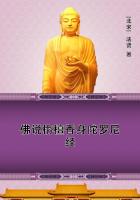Against the judgment of my associates in the railway management I decided to open my doors to any individual or committee of the company. At first I was overwhelmed with petty grievances, but when the men understood that their cases would be immediately heard and acted upon, they decided among themselves not to bring to me any matters unless they regarded them of vital importance. In this way many of the former irritations, which led ultimately to serious results, no longer appeared.
I had no trouble with labor unions, and found their representatives in heart-to-heart talks very generally reasonable. Mr. Arthur, chief of the Brotherhood of Locomotive Engineers, had many of the qualities of a statesman. He built up his organization to be the strongest of its kind among the labor unions. I enjoyed his confidence and friendship for many years.
There never was but one strike on the New York Central during my administration, and that one occurred while I was absent in Europe. Its origin and sequel were somewhat dramatic. I had nearly broken down by overwork, and the directors advised me to take an absolute rest and a trip abroad.
I sent word over the line that I wanted everything settled before leaving, and to go without care. A large committee appeared in my office a few mornings after. To my surprise there was a representative from every branch of the service, passenger and freight conductors, brakemen, shopmen, yardmen, switchmen, and so forth. These had always come through their local unions.
I rapidly took up and adjusted what each one of the representatives of his order claimed, and then a man said: "I represent the locomotive engineers."My response was: "You have no business here, and I will have nothing to do with you. I will see no one of the locomotive engineers, except their accredited chief officer.""Well," he said, "Mr. President, there is a new condition on the road, a new order of labor called the Knights of Labor. We are going to absorb all the other unions and have only one. The only obstacle in the way is the locomotive engineers, who refuse to give up their brotherhood and come in with us, but if you will recognize us only, that will force them to join. Now, the Brotherhood intends to present a demand very soon, and if you will recognize our order, the Knights of Labor, and not the Brotherhood of Locomotive Engineers, we will take care of what they demand and all others from every department for two years, and you can take your trip to Europe in perfect peace of mind. If you do not do this there will be trouble."I declined to deal with them as representatives of the Brotherhood of Locomotive Engineers. Then their spokesman said: "As this is so serious to you, we will give you to-night to think it over and come back in the morning."I immediately sent for the superintendent of motive power and directed him to have posted by telegraph in every roundhouse that the request of the Brotherhood of Locomotive Engineers, of which this committee had told me, had been granted. The next morning the committee returned, and their leader said: "Well, Mr. President, you have beaten us and we are going home."Then I appealed to them, saying: "I am a pretty badly broken-up man. The doctors tell me that if I can have three months without care I will be as good as ever. You must admit that I have at all times been absolutely square with you and tried to adjust fairly the matters you have brought to me. Now, will you take care of me while I am absent?"They answered unanimously: "Mr. President, we will, and you can be confident there will be no trouble on the New York Central while you are away."I sailed with my mind free from anxiety, hopeful and happy, leaving word to send me no cables or letters. After a visit to the Passion Play at Ober-Ammergau in Upper Bavaria, I went into the Austrian Tyrol. One night, at a hotel in Innsbruck, Mr. Graves, a very enterprising reporter of a New York paper, suddenly burst into my room and said: "I have been chasing you all over Europe for an interview on the strike on the New York Central." This was my first information of the strike.
As soon as I had left New York and was on the ocean, the young and ambitious officers who were at the head of the operations of the railroad and disapproved of my method of dealing with the employees, discharged every member of the committee who had called upon me. Of course, this was immediately followed by a sympathetic outburst in their behalf, and the sympathizers were also discharged. Then the whole road was tied up by a universal strike. After millions had been lost in revenue by the railroad and in wages by the men, the strike was settled, as usual, by a compromise, but it gave to the Knights of Labor the control, except as to the Brotherhood of Locomotive Engineers. The early settlement of the strike was largely due to the loyalty and courage of the Brotherhood.
During my presidency I was much criticised by the public, but never by the directors of the company, because of my activities in politics and on the platform. For some time, when the duties of my office became most onerous, and I was in the habit of working all day and far into the night, I discovered that this concentrated attention to my railroad problems and intense and continuous application to their solution was not only impairing my efficiency but my health. As I was not a sport, and never had time for games or horses, I decided to try a theory, which was that one's daily duties occupied certain cells of the brain while the others remained idle; that the active cells became tired by overwork while others lost their power in a measure by idleness; that if, after a reasonable use of the working cells, you would engage in some other intellectual occupation, it would furnish as much relief or recreation as outdoor exercise of any kind. I had a natural facility for quick and easy preparation for public speaking, and so adopted that as my recreation. The result proved entirely successful.















